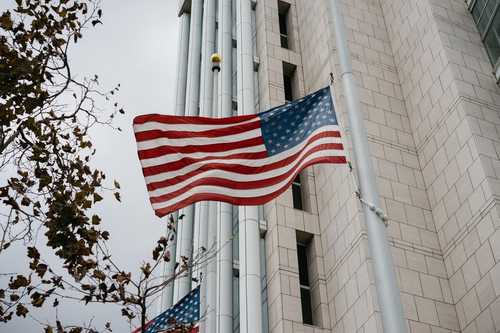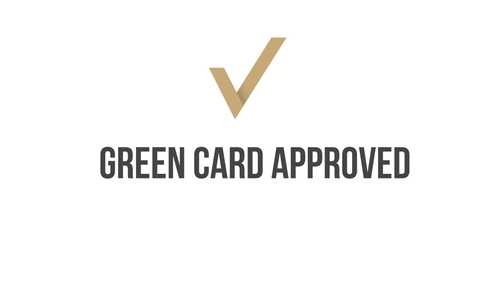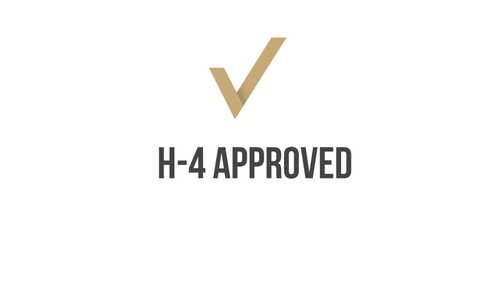Although the E-1 visa and the E-2 visa are quite similar, there are a few key differences between the two types. They are both “temporary worker” nonimmigrant visas and they both require you to meet certain eligibility requirements.
To apply for an E-type visa, you need to be a citizen of one of the treaty countries. Treaty countries have a treaty of commerce, navigation, or trade with the United States.
What is an E-1 visa?
The E-1 visa, also known as an E-1 treaty trader visa or an E-1 international trade investor visa, allows individuals or employees of companies to enter the United States for the purpose of carrying out substantial international trade. The term trade includes the trade of goods, services, and banking. Even though there are no set limits to the amount of trade the individual engages in, the government does place an emphasis on the number of transactions compared to their total value. Qualified treaty traders and employees will be allowed a maximum initial stay of two years but they can apply for regular extensions that can last up to two years each.
As previously mentioned, to qualify for an E-1 visa, the individual must be a national of one of the treaty countries with which the United States maintains a treaty of commerce and navigation. You can check out which countries are classified as E-1 on the official website of the US Department of State.
I offer confidential 30 minute & 1 hour consultations.
Schedule a consultation
What are the E-1 requirements?
In order to qualify for a Treaty Trader (E-1) visa, the applicant must:
Be a citizen of a treaty country or a country with which the United States maintains a qualifying international agreement, or which has been deemed a qualifying country by US legislation;
- Carry on substantial trade;
- Carry on principal trade between the United States and the treaty country which qualified the treaty trader for his/her E-1 visa;
- Make sure that the trading firm for which he/she plans to come to the United States must have the nationality of the treaty country.
Another way to qualify for an E-2 visa is to be an employee of a treaty trader. In this case, the requirements are slightly different. The applicant must:
- Be the same nationality of the principal alien employer (who is already a national of a treaty country);
- Meet the definition of “employee” under the relevant law;
- Be engaging in duties in executive or supervisory capacity OR if employed in a lesser capacity, have special qualifications that make the employee’s role in the operation of the treaty enterprise absolutely critical.
What is the difference between substantial trade and principal trade?
Substantial trade typically refers to an amount of trade sufficient to ensure a continuous flow of international trade items between the United States and the treaty country. The important aspect of this trade is the fact that it is concentrated around small transactions over a longer period of time, thus ensuring the continuous flow required for it.
Principal trade between the United States and a given treaty country exists when over 50% of the volume of international trade of the treaty trader is between the United States and the treaty country of the trader.
How do I apply for an E-1 visa?
The application process for treaty visas can be particularly complex and confusing. It is always our first and foremost recommendation that you schedule a consultation with an experienced immigration attorney who has extensive experience with employment-based immigration.
You will need to file Form I-129, Petition for a Nonimmigrant Worker, along with all of the necessary evidence and supporting documentation required by the USCIS. You will also need to pay a filing fee.
A good immigration lawyer will take care of all these steps for you, ensuring the best possible outcome for your case.
What is an E-2 visa?
The E-2 visa, also known as an E-2 Treaty Investor Visa, allows individuals in possession of significant personal funds to invest a substantial amount of capital in a US business. Certain employees of a treaty investor might also be eligible for an E-2 classification.
If you want to know more about the E-2 treaty countries, you can check out our blog post about Which Countries are Eligible for an E-2 Investor Visa?.
What are the E-2 requirements?
In order to qualify for a Treaty Investor (E-2) visa, the applicant must:
- Be a national of a treaty country;
- Invest a substantial amount of money, with investment funds or assets committed and irrevocable;
- Operate a real fully functioning enterprise, an active commercial or entrepreneurial undertaking;
- Generate through his/her investments significantly more income than just to provide a living to the applicant and his/her family OR it must have a significant economic impact in the US;
- Have control of all funds;
- Be coming to the United States to develop and direct the enterprise as a principal investor.
If the applicant isn’t the principal investor, then he/she must be an essential employee with an executive or supervisory role.
What is a substantial investment?
An investment that answers to the following criteria is considered substantial. The investment must:
- Be significant as related to the total cost of either purchasing an established enterprise or establishing a new one;
- Enough to ensure the successful operation of the enterprise due to the treaty investor’s investment;
- Of a significant amount to support the likelihood that the treaty investor will successfully develop and direct the enterprise.
How do I apply for an E-2 visa?
The application process for an E-2 visa is quite similar to the E-1 visa, at times even identical. Therefore, it is still our recommendation that you schedule a consultation with an experienced employment-based immigration lawyer who can guide you through it.
The form needed for an E-2 visa is the same form as the one needed for an E-1 visa – Form I-129, Petition for a Nonimmigrant Worker. You also need to provide the required evidence and supporting documents as well.
If you would like to know more about the E-2 visa process, you can read our page about E-2 visa. It offers plenty of information in a systematized and organized way.
What are the most significant differences?
In conclusion, the most important differences between E-1 and E-2 visas are:
- E-1 treaty trader applicants must be individual citizens of the country from which they wish to apply meanwhile E-2 investor visa applicants can be an individual, partnership, or corporate entity;
- The E-1 visa focuses on international trade meanwhile E-2 visa are appropriate for investors whose investment is quite substantial, with investment funds or assets committed and irrevocable;
- E-2 visa applicants must have control over the money being invested. They are also expected to create more income than is needed to sustain themselves and their family. This is not a requirement for E-1 visa applicants.
E-1 and E-2 visa terms
Family – holders of either visa can bring their spouse and unmarried children under the age of 21. Spouses are permitted to work, but their children are not.
Duration – the initial stay for both visas is generally up to five years, with the possibility of an extension of up to two years. There is no limit to the number of extensions, as long as all the visa conditions are still met.
Our Immigration Lawyer is Here to Help You
Are you a foreign national looking for the best E-type visa? Would you like a customized plan for your investment or trade immigration case? Are you interested in all possible options? Pandev Law has years of experience with E-type visa cases. Our employment-based immigration attorney has the knowledge and expertise to guide you through your journey.
Please complete our contact form, email [email protected], or call us at (843) 779-6607 to schedule a consultation with our Charleston immigration attorney.
During your consultation, our immigration lawyer will provide an honest assessment of your case, and a recommendation about your next steps.
I offer confidential 30 minute & 1 hour consultations.
Schedule a consultation
Disclaimer: This blog article is provided by Pandev Law, LLC for general educational and informational purposes only. Although this article discusses general legal issues, it does not constitute legal advice, nor does it establish an attorney-client relationship. No reader should act or refrain from acting on the basis of any information presented in this article, or elsewhere on this website, without seeking the advice of appropriate legal counsel, or other professional counsel, licensed in the relevant jurisdiction. Pandev Law, LLC expressly disclaims any and all liability with respect to any actions taken, or not taken, based on any content of this article or website. This blog article may constitute attorney advertising. Prior results do not guarantee a similar outcome.














